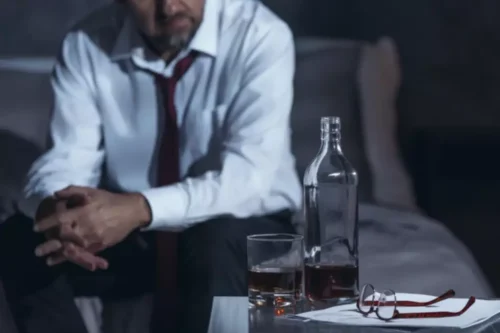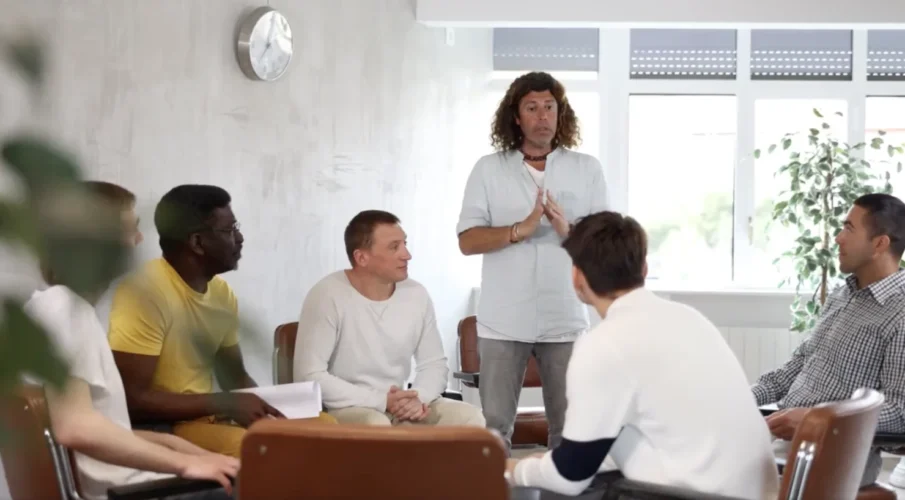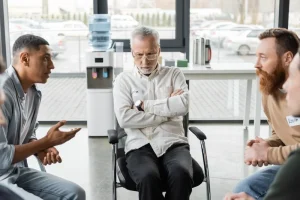
Some attendees may be there “voluntarily,” but only to save their marriage or keep a job, not believing they need help. In residential treatment, clients attend mandatory groups as part of the daily schedule. Once their original paper is returned to them, they can read and share with the group. This can lead to a powerful discussion about image, reputation, feeling fake, etc. National surveys reveal that only about one-third of individuals with AUD attempt to quit drinking each year. Of those who do attempt, merely 25 percent achieve success in reducing their alcohol intake for more than a year.
Sound Therapy

Group therapy sessions often include similar exercises and activities to promote a healthy support network for your recovery journey. In my experience, the power of group therapy lies in its interactive nature. It’s about engaging with others, learning from their experiences, and growing together. Substance abuse treatment is challenging, but recovery is possible with the right support and guidance. Group therapy provides a nurturing environment where individuals can share their struggles, learn from each other, and build the skills needed to overcome addiction.
Problem-Solving Activity To Manage Triggers
- Cognitive behavioral group therapy aims to create a collaborative environment that fosters emotional and mental well-being.
- Clients will oftentimes subconsciously demonstrate actions in group therapy that are representative of their routine patterns and thought processes.
- Group members will act out the events while discussing how to handle conflicts and achieve the healthiest outcome.
- Many of these group therapy activities are highlighted in this article.
- From my perspective, these activities can have a profound impact on an individual’s self-esteem.
If the parts of your being are healthier connected due to yoga, practicing mindfulness will only enhance its effects and accelerate this connection. We also offer psychoeducation groups on a specific topic related to addiction or mental health. Problem-solving practice helps identify strategies to support people in coping with the difficulties of life and creates the ability to solve everyday problems. Group therapy sessions led by an experienced facilitator can be a source of stabilization and support. The group can also comfort members through times of crisis and guide them. They can also help participants develop their communication skills and experience strength through vulnerability.
A list of possible group therapy activities
For example, intensive outpatient treatment may require meeting twice a week, while inpatient programs may offer daily sessions. Many recovery support groups worldwide are also free of charge, making them an accessible and convenient option for continuing care and relapse prevention once treatment ends. Being a part of a group can help establish a source of accountability for group members. Group sessions provide them with a set time within their routine to focus on their recovery. Group sessions can allow members to work through challenging emotions such as shame and guilt.
For example, you may have to apologize to loved ones you have hurt, establish clear boundaries in your relationships, and cut ties with people who still use drugs. Many recovery groups make affirmation collages by writing down positive statements, cutting them into strips, and gluing the strips onto poster boards. These groups use a variety of activities to help people recover together.
Learn About Self-Care
According to the National Institutes of Health (NIH), taking time to express gratitude can boost your emotional wellness and help with stress management. To encourage helpful discussions, some recovery groups addiction group activities toss around question balls. In addition, they help new members view the group as an open, supportive environment. Do something creative and have the group come up with a piece of artwork collaboratively.
The implementation of new and challenging activities for group members helps to strengthen those bonds. CBT skills group is a course that teaches mindfulness, your emotions, and the interconnection of thoughts, feelings, and behaviors. This peace will help you stay motivated towards your recovery journey.

Trust-Building Exercises
We find that many of our clients are unsure of what to expect, and need time to feel out the group dynamic before speaking up. Self-care includes creating a sleep routine, eating healthy meals, staying hydrated, exercising, and spending time with loved ones. Practicing gratitude has proven benefits for mental and physical health, and it can boost recovery by helping people focus on the positives.

One of the most common experiences people in recovery share is cravings and triggers to drink or use drugs, and discussing them can help prevent relapse. Group therapy in addiction treatment consists of three or more people, led by a licensed therapist, working together through issues related to addiction using behavioral therapy. The ideas https://ecosoberhouse.com/ and activities for substance abuse group therapy that are used will have an impact on the benefits that our clients have. In a substance abuse group, members can discuss their triggers along with coping skills they have found useful. The more you learn about triggers and how to manage them, the easier it is to maintain your recovery.

